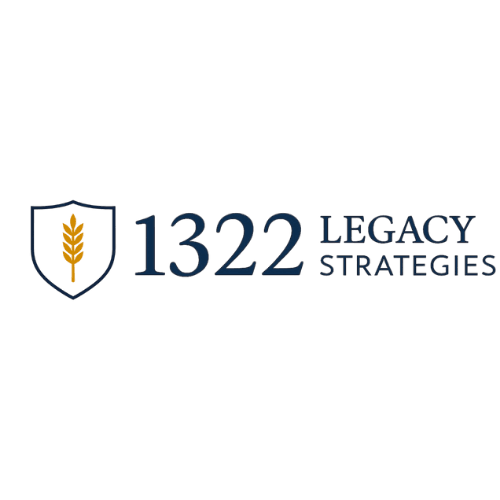In Scripture, food and drink are emblems of God’s blessing. “Go, eat your bread with joy, and drink your wine with a merry heart, for God has already approved what you do” (Ecclesiastes 9:7).
But what happens when the bread grows hollow and the wine turns thin? Inflation does this—not just to money, but to food itself. As Saifedean Ammous argues in The Fiat Standard and Fiat Food, monetary debasement doesn’t only make dollars weaker. It warps incentives, encouraging subsidies for cheap corn and sugar instead of nutrient-dense protein and fats.
This is why the grocery store shelves are full of highly processed, shelf-stable products while families struggle to afford whole foods. The same policy that dilutes your savings also dilutes your dinner.
1. Food Inflation by the Numbers
- In 2023, Americans spent 11.3% of disposable income on food, the highest share since 1991. Thirty years ago, this was normal. Today, it reflects the painful return of food as a financial burden.
- Between 2020–2024, the food CPI jumped 23.6%, outpacing overall inflation—the steepest rise since the 1970s.
- Lower-income families are hit hardest: they now spend 32.6% of their after-tax income on food, compared with just 8.1% for high earners.
This is Engel’s Law in action: as inflation erodes currency, poorer families spend a greater share on food, and the quality of that food declines.
2. Cheap Calories, Hollow Nourishment
Government subsidies favor corn, wheat, and soy. The result: mountains of cheap sugar, starches, and seed oils—while quality protein and fats remain expensive.
Ammous calls this fiat food: calories without nourishment. It’s the same sleight of hand as fiat money—numbers without substance. Families are told they have “enough,” but what they have doesn’t satisfy.
Proverbs 20:17 warns us: “Bread gained by deceit is sweet to a man, but afterward his mouth will be full of gravel.” Subsidized food may look abundant, but it’s gravel in the mouth—leaving bodies weak and medical costs soaring.
3. The Root Cause: Monetary Debasement
Inflation is not a natural disaster. It is policy. The Federal Reserve expands the money supply, diluting value. Subsidy structures then redirect resources to politically favored crops, not nourishing ones.
Thus the true solution begins with monetary integrity. End inflation at its source. End the Fed’s power to debase. Until then, families must resist by building parallel systems of nourishment and finance.
4. Practical Stewardship Solutions
A. Build Income Floors
Scholars like Wade Pfau and Michael Finke emphasize that retirement security is not about portfolio highs—it’s about dependable income. A guaranteed income floor, such as an annuity or pension stream, is like a steady wheat field: reliable, sustaining, and not at the mercy of markets.
Families with income floors can weather rising grocery bills without panic. The floor feeds them even when inflation takes bites out of their purchasing power.
B. Reclaim the Banking Function (Infinite Banking)
Nelson Nash taught that families lose 34.5¢ of every dollar to interest paid to banks, credit cards, and third parties. Think about that: if your household earns $100,000, nearly $34,500 quietly leaks out each year—not buying food, not building wealth, but enriching banks.
That’s why many families feel squeezed: not only are groceries inflated, but a third of their cash flow is siphoned off before it ever feeds their children.
What happens if you recapture that interest?
- A family redirecting $34,500 annually over 20 years at even modest growth could reclaim hundreds of thousands of dollars.
- That reclaimed capital could fund healthier food choices, private education, business starts, or legacy projects.
- It transforms the grocery bill from a burden to a manageable expense.
Infinite Banking achieves this by creating a privately owned capital system. Through a properly structured whole life policy, you become your own banker. You finance cars, education, even homes—while interest payments circle back into your own system instead of to Wells Fargo or Visa.
This isn’t theory. It’s nourishment for the family budget. Just as local farms feed better than industrial supply chains, Infinite Banking feeds a family’s finances with healthier, more sustainable capital.
5. Inflation’s Grip vs. Stewardship’s Freedom
Consider the contrast:
- Fiat System: Debased dollars buy subsidized junk food, while families bleed interest payments to banks. Both diet and finances decay.
- Stewardship System: Families build income floors for stable provision and recapture interest through Infinite Banking. Food choices improve, financial stress lightens, and legacy planning strengthens.
This is Isaiah 55:2 made plain: “Why do you spend your money for that which is not bread, and your labor for that which does not satisfy?” The fiat system offers gravel. Stewardship offers grain.
6. Toward a Legacy of Nourishment
Proverbs 13:22 declares: “A good man leaves an inheritance to his children’s children.” That inheritance is not just money—it is the capacity to feed, to provide, to steward wisely.
Ending the Fed may someday restore money’s integrity at the national level. Until then, we act as faithful stewards at the family level:
- Income floors secure today’s bread.
- Infinite Banking recaptures tomorrow’s capital.
- Faithful stewardship transforms hollow calories into lasting nourishment.
We cannot choose the world’s monetary policy. But we can choose how we steward our blessings. Families who recapture the 34.5¢ leak and redirect it toward real provision will not only survive inflation—they will bless generations.
Closing Call
Inflation has stolen enough. It has hollowed our food, weakened our money, and bound our families in debt.
The time has come to choose grain over gravel. Build income floors. Reclaim banking. Feed your family with provision that satisfies.
Control your capital. Build your legacy. Nourish generations.


